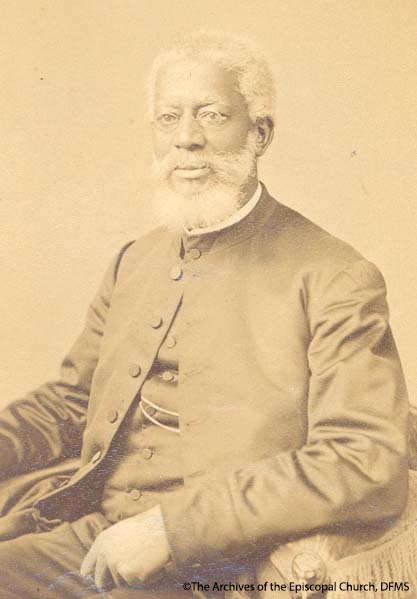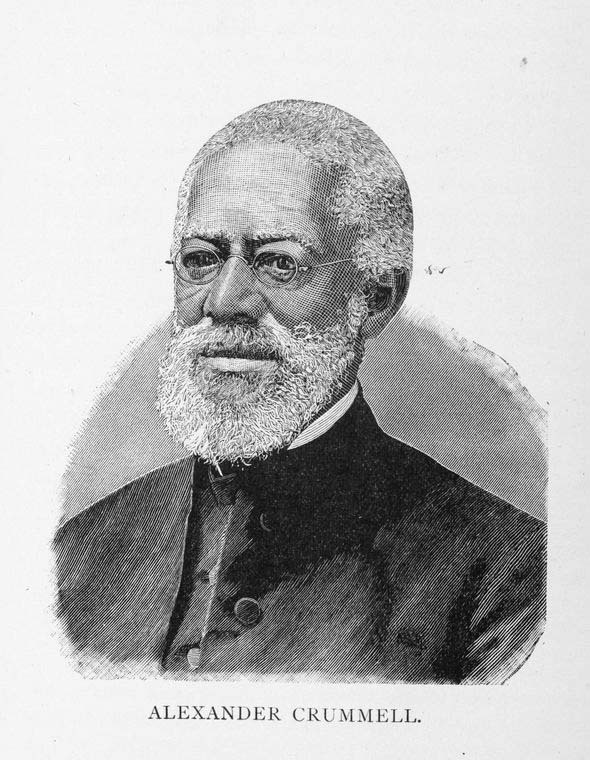Leadership Gallery
The Reverend Alexander Crummell, 1819-1898
Episcopalian priest, missionary, and educator, Alexander Crummell was founder of the American Negro Academy in 1897, America’s first major Black scholarly society. As a religious leader and an intellectual, he advocated for educational opportunities and leadership among young Black Americans.
Born in New York City in 1819, the grandson of a West African chief and the son of a free mother, Crummell attended the Quaker-operated New York African School as a young man. Among his classmates were other future Black leaders: Henry Highland Garnet, Ira Aldridge, and Samuel Ringgold Ward.
Due to his race, Crummell was denied entrance to General Theological Seminary. Despite this setback, he went on to receive his theological education in the Diocese of Massachusetts. In 1842 he was ordained to the diaconate and two years later to the priesthood by the Bishop of Delaware. In 1844 he established a small mission in Philadelphia where he became involved in politics including the campaign for equal suffrage and the abolition of slavery. After being excluded from the Pennsylvania diocesan convention, Crummel left the diocese and moved to England in 1848 where he graduated from Queen’s College, Cambridge in 1853.
As an early advocate of the colonization of Liberia, Crummell went to Africa in 1853 as a missionary and served at four parishes and on the faculty of Liberia College. Crummell believed African Americans needed a moral and spiritual revival and viewed Liberia as the place to accomplish this. Here was an opportunity to create a model Christian republic where Black citizens could experience a racial uplift with the Episcopal Church providing a moral and rational discipline. Making visits to the United States, he advocated the emigration of Black Americans to Africa and for African self-help.
Print of the Reverend Alexander Crummell, c. 1885, from Men of Mark: Eminent, Progressive and Rising by William J. Simmons, published in 1887. Print courtesy of UNC and "Documenting the American South" project.
After running into opposition and indifference in Liberia, Crummell settled in Washington, D.C. in 1873 and became “missionary at large to the colored people.” He focused on founding and strengthening urban Black congregations that would provide worship, education, and social services for their communities. In 1883 when the Southern Bishops proposed that all Black congregations become separate missionary districts, Crummell organized the Conference of Church Workers Among the Colored People (succeeded by the Union of Black Episcopalians) in protest.
A prolific writer, Crummell published articles, sermons, and three books: The Future of Africa: Being Addresses, Sermons, etc. Delivered in the Republic of Liberia (1862); The Greatness of Christ and Other Sermons(1882); and Africa and America: Addresses and Discourses (1891). He continued his campaign against racial oppression and the promotion African American leadership until his death in 1898.
His private papers are located at the Schomburg Center for Research in Black Culture, New York. [Sources]



